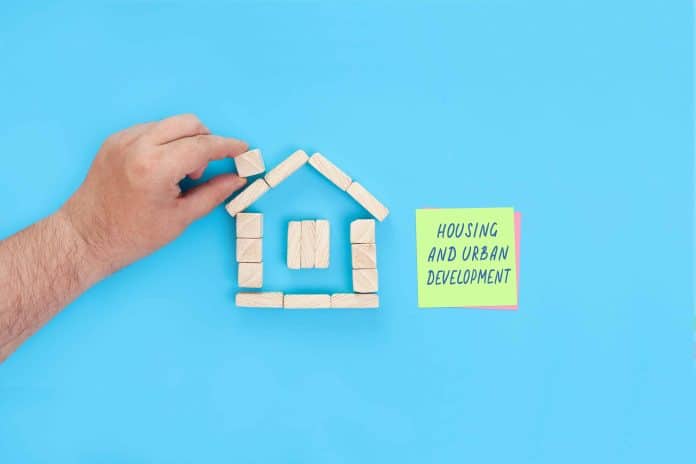
A lot of individuals have a difficult time staying on top of their housing costs. Generally, you should keep housing costs to at most 30% of your gross wages per month if you want your costs to remain affordable, according to the definition from the United States Department of Housing and Urban Development (HUD). This percentage can be a challenge for many families to reach. Fortunately, the HUD has housing assistance options available to help you out. Other than these assistance programs that can help individuals reach affordable housing, they also have support options to help individuals purchase or renovate their properties. This is why it is important to find out what is available!
Understanding HUD Assistance Opportunities
There are popular HUD assistance opportunities, which include:
- Housing Choice Voucher Program
- Public Housing
- FHA Loans
- HUD Homes
- Housing Opportunities for Persons with AIDS (HOPWA)
- Good Neighbor Next Door (GNND) Program
Housing Choice Voucher Program
One of the most popular HUD assistance opportunities on this list is the Housing Choice Voucher Program, also referred to as Section 8. This is a housing program that can offer housing vouchers to eligible recipients. As recipients, they can use these vouchers to pay for a part of the housing costs that people face. Recipients have the opportunity to decide on where they want to live. They can only pick homes that allow these vouchers as a form of payment! Additionally, the homes must meet local PHA requirements that include passing a home inspection.
The program is available thanks to the HUD, but local Public Housing Authorities (PHAs) are in charge of the program’s management, administration, etc. It is important to keep in mind that particular eligibility requirements can differ based on the area. There are generally four factors that local PHAs take into consideration. These four factors include:
- Citizenship Status
- Income Level
- Household Status
- Eviction/Criminal History
If you are interested in finding more information or starting the application, you can contact your local PHA. People who need more help can get in touch with their local HUD Field Office.
Public Housing
Another popular HUD assistance opportunity is Public Housing. The purpose of this program is to offer secure and appropriate rental housing to eligible households at a rate they can pay for. The types of homes that qualify for public housing are not just apartments. For instance, public housing can also be seen as a single-family home. Despite the fact that this is a HUD program, housing agencies (HAs) manage the program at a local level. Specific eligibility requirements will differ. They will define who is eligible based on the following requirements:
- Income Level
- Household Status
- Citizenship Status
- References
Despite that references do not go into figuring out if a person is eligible or not, it is still important to remember this aspect. Even people who are eligible based on income, household status, and citizenship status can still be disqualified from this program if their references do not check out. References allow local HAs to find out if recipients will be good renters and neighbors. If you are interested in starting the application process, you should contact your local HA. Individuals that need more help can get in touch with their HUD Field Office.
FHA Loans
One specific agency a part of HUD is the Federal Housing Administration (FHA). With the FHA, they insure loans that lenders and approved banks offer. By ensuring these loans, the FHA is able to offer less risk for lenders. This is because the FHA will provide protection for the lenders against financial losses by paying a claim to the lender for the principal balance of a loan that was not paid, in the case that an individual defaults on their mortgage. Some benefits that come with these loans are that they have fewer down payment requirements and allow applicants to have a lower credit score than most standard loans. Other than a standard mortgage, there are some other forms of FHA mortgages that people might not know about! Some of these loans include:
- Home Equity Conversion Mortgage (HECM): HECM is a form of reverse mortgage created for people who are at least 62 years old. Recipients of this mortgage can transform their home equity into cash while keeping the home’s title.
- 203(k) Improvement Loan: This housing loan comes along with additional money. The extra money can go towards managing the expenses of renovations and repairs to the home.
- Energy Efficient Mortgage: This is also a housing loan that comes along with additional funds. The additional funds can go towards improving homes to become more energy efficient.
- Section 245(a) Loan: When applicants think that their income will increase, they might gain from this housing loan opportunity. The mortgage begins at a lower payment per month but increases gradually.
HUD Properties for Sale
Residential homes that belong to HUD are available for sale at a reduced rate. They are owned by the HUD because they come from a foreclosure on a mortgage that the FHA insured. HUD will provide the foreclosed properties for sale to try to recover the loss that came along with the foreclosure. If you want to look through discounted homes, then you will need to check out the HUD Home Store.
There is a particular process when it comes to purchasing these types of homes. Only brokers that the government registers can sell these properties. The HUD Home Store is not only a great resource to look through homes but also to know more about what it means to deal with the home buying process with these kinds of homes.
Housing Opportunities for Persons with AIDS (HOPWA)
Different people go through different hardships in life. This is why the federal government offers HOPWA. This program can offer assistance to eligible individuals that have HIV/AIDS to get housing. This program helps people through grants to several sources such as nonprofit organizations, state governments, etc. There are two grants that sources can gain from which are:
- Formula Grants
- Competitive Grants
The funds that sources get can help people through housing support, social services, and more. While eligible people and their households cannot gain directly from HOPWA, they can gain from HOPWA-funded options available in the local community.
Good Neighbor Next Door (GNND) Program
Another home buying option on this list is the GNND program. This option provides a 50% discount on the home’s listing price for qualifying recipients. To take advantage of this option, recipients must have an eligible job position. A qualifying profession is one of the following:
- Teachers (from pre-K to 12th grade)
- Firefighters
- Emergency Medical Technicians (EMTs)
- Law Enforcement Officers
Other than having a qualifying job position, recipients must also remain dedicated to staying on the property for 36 months at a minimum, as their primary residence. Additionally, these properties need to be located in revitalization areas that are exclusively sold through the GNND program. If you are interested in this option, then you will need to look for listings in your current state. When you find a home that you like, you will need to follow the instructions to show your interest. If the property you want has several submissions, then the offer goes to an interested person that the program chooses randomly through a lottery.
In Conclusion
Everyone is going through a different set of challenges in life. This is why a specific housing assistance opportunity can make a world of a difference in your current situation. Fortunately, there is a wide range of housing assistance options out there, thanks to the United States Department of Housing and Urban Development (HUD). There might be more support options than you think that can be beneficial for your housing situation!





















